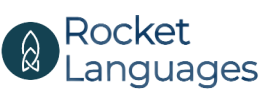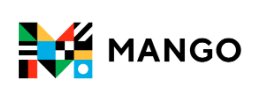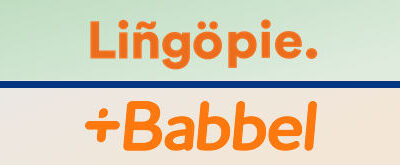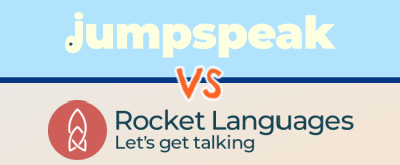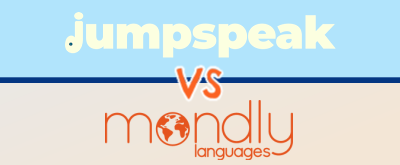When it comes to teaching methodologies and learning frameworks within language apps, there may not be two programs more different than Rocket Languages and Mango Languages. These two programs differ in just about every way. That doesn’t necessarily mean one is better than the other though—they simply favor different learners and are better suited to different needs. Learn more about Mango and Rocket in this side-by-side comparison.
Video Review: Rocket Languages vs Mango Languages
In the video above, Bianca from the Guide 2 Fluency team gives a full comparison of Rocket Languages vs Mango Languages. She covers how each programme teaches languages, key features, pros and cons, pricing, and whether Rocket Languages or Mango Languages is worth it compared to other language learning apps. For more detail, be sure to continue reading our full written comparison below.
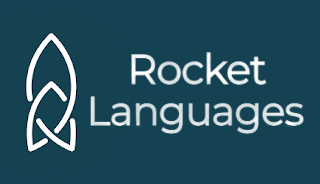
Sale: 60% OFF
Use Code: INSIGHT60
|
$180 Lifetime |
Our highest-rated app to learn a new language. With audio lessons, detailed grammar instruction, and diverse exercises, Rocket Languages has it all. |
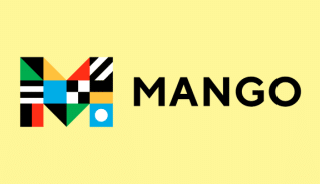
SALE: 10% Off
Applied In Cart
|
$10-$20/mo |
A newer language app which features short lessons (~10 mins each), detailed grammar explanations, and a few other powerful learning tools. |
Editor’s Choice
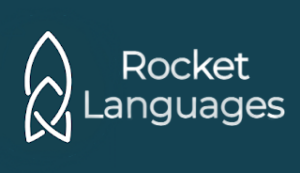
Rocket Languages
- Free Trial
- Money Back Guarantee
Pros
- Rocket’s curriculum and teaching methodology is more comprehensive
- Quick and accurate speech recognition technology (powered by Google)
- Interactive audio lessons with fluent speakers to develop listening and speaking skills
- Rocket Languages offers frequent, large discounts
- Detailed grammar instruction and cultural insights
Cons
- More expensive than Mango Languages
- Lesson format is longer and more rigorous
How Rocket Languages Works
At the heart of the Rocket Languages app is a series of audio lessons. Think old school foreign audio lessons on tape, but with a more modern and digital touch.
Each unit kicks off with a 30-minute audio exercise where an English-speaking moderator guides you through a conversation in your target language. You’ll listen to a couple sentences, then pause to hear explanations or jump in to respond by repeating certain words and phrases.
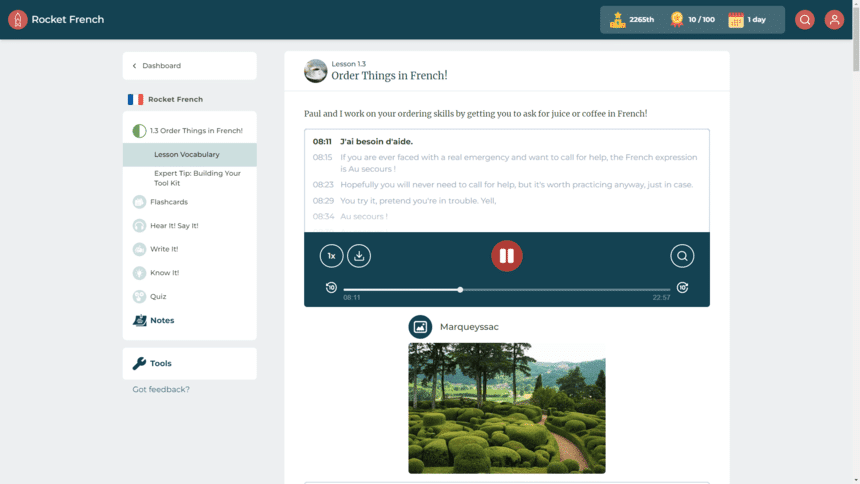
While the audio plays, you get a scrolling transcript right below the control panel, which is, in my opinion, a lifesaver for visual learners like myself who like to see how words are spelled out.
After each audio lesson, there are reinforcement drills to lock in what you just learned. These include listen-and-repeat exercises, flashcards, quizzes, and an interactive role-play where you get to reenact the conversation from the audio lesson by playing the part of one of the two speakers.
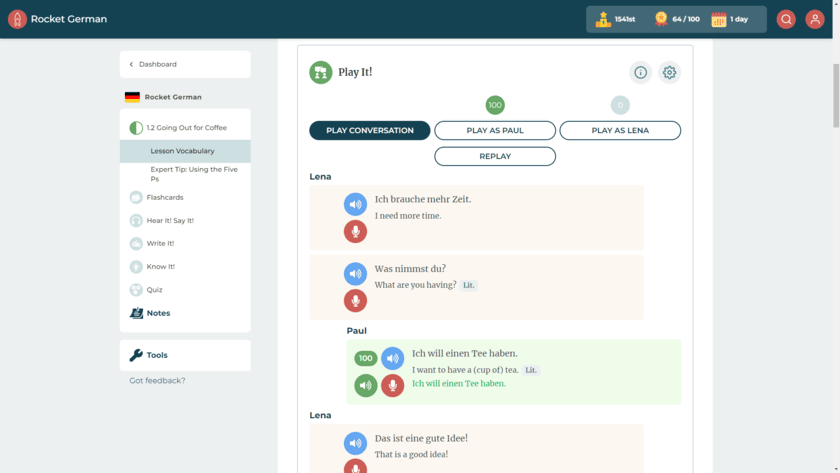
Beyond the audio lessons, Rocket’s Language & Culture learning units dive deep into grammar and cultural points. Here, Rocket breaks down grammar rules touched on during the audio lesson, giving you just the essentials with bite-sized explanations, examples, and visuals. The goal? To help you get a grip on how English and your target language differ structurally, and maybe pick up some cultural tidbits along the way.
That is the Rocket Languages program in a nutshell.
Why Rocket Should Be Your Pick
Next, I’m going to provide you with a punch list of the advantages that I see Rocket having over Mango Languages.
Detailed Audio Lessons
Rocket’s biggest draw is definitely the audio lessons. Unlike most language apps, Rocket makes these deep exercises the core of their program. The lessons get you comfortable thinking and speaking on the fly—just like in real-life conversations.
Plus, when you’re done, you can play the whole conversation back and take on the role of one of the speakers. This approach of mixing listening, speaking, and role-play makes a world of difference, in my opinion.
Grammar Support That’s Clear and to the Point
Rocket also takes grammar seriously, in contrast to apps like Mondly and Duolingo, which leave grammar instruction up to the user to figure it out more intuitively. Rocket’s Language & Culture lessons tackle specific grammar points head-on with short explanations, examples, and helpful graphics.
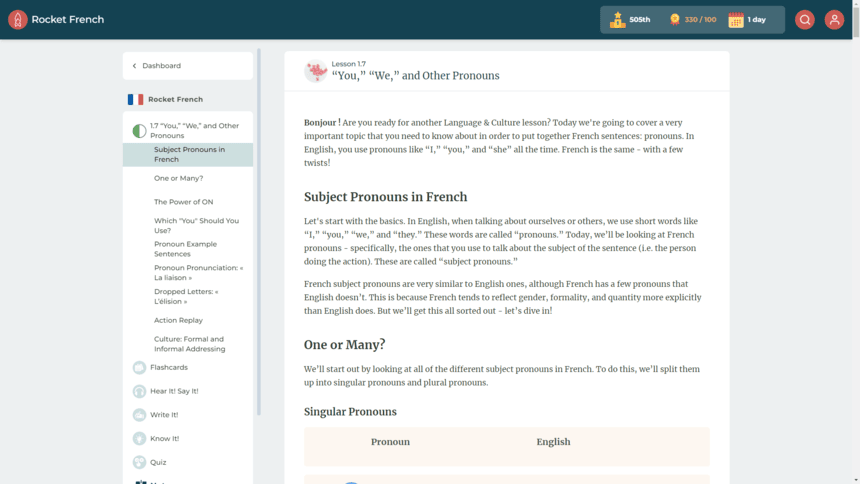
I personally found these lessons a lot more effective at explaining those structural differences between English and other languages.
A Robust Learning Structure
Last but not least, Rocket’s framework just feels more well-rounded. I know this is a more amorphous point, but each unit has detailed audio lessons, a wide range of follow-up drills (think flashcards, quizzes, and more), the Language & Culture lessons, and extras like language survival kits and leaderboards. Compared to Mango’s approach, Rocket feels more like a full-fledged language learning program.
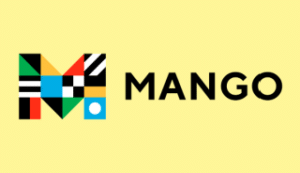
Mango Languages
- 70+ Languages
- Free Trial
Pros
- Short lessons that go fast and are easy to complete
- More affordable and flexible than Rocket with monthly plans
- Speech tool includes unique features like visual readouts
- Detailed grammar explanations
Cons
- The program overall not as comprehensive as Rocket’s
- Limited use of pictures, visuals and graphics
How Mango Languages Works
With Mango Languages, the lessons are more bite-sized. Each one typically lasts 5 to 15 minutes, and is led by an English speaker who introduces a few new words or phrases. You go through exercises like learning new words, speaking quizzes, and critical thinking.
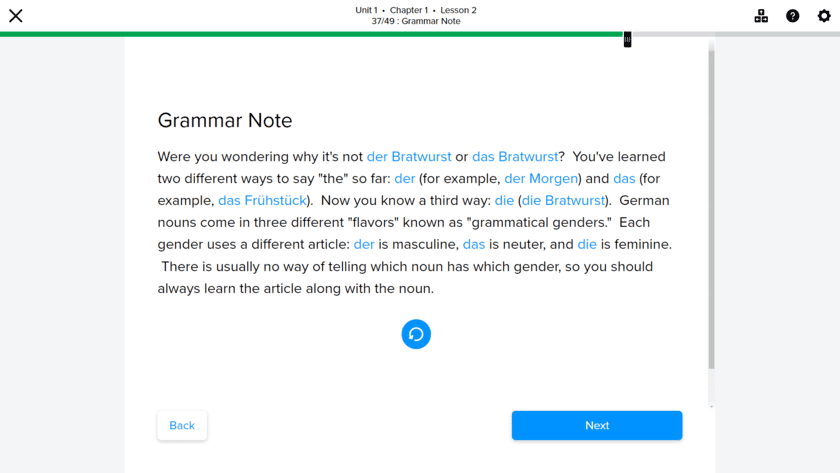
However, while these lessons are good for teaching a few new words and phrases at a time, Mango lacks the variety and depth you’ll find in other apps like Rocket and Pimsleur. There are no videos, audio explanations, role-play exercises, or text lessons. Occasionally, Mango will throw in a quick cultural tip, but overall, it’s a more straightforward setup.
Why Mango Should Be Your Pick
Knowing how the Mango program works, here is where I see the program as having its advantages.
Budget-Friendly
If you’re looking for an affordable option, Mango wins on price. Rocket offers lifetime access, but at a higher upfront cost ($180+).
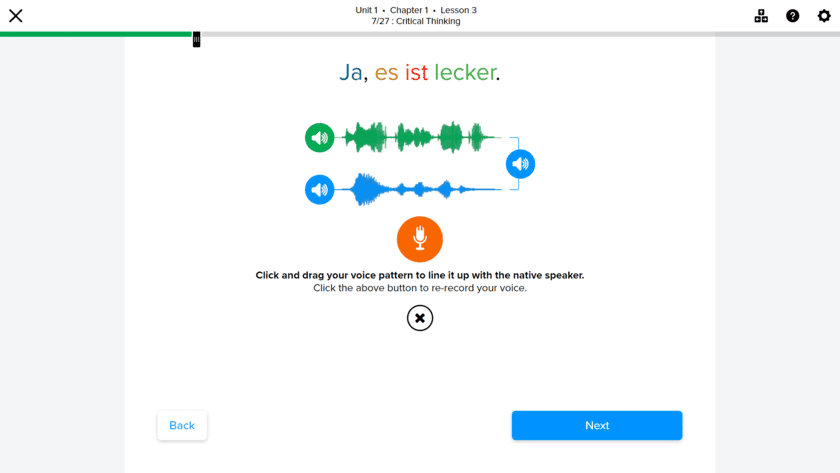
Meanwhile, Mango’s flexible monthly plans are typically between $10 and $20, making it an attractive choice for short-term learners.
Helpful Speech Tool
Mango has a cool voice tool that lets you record yourself saying a phrase, then compares your pronunciation to a fluent speaker’s with a visual guide of tone and inflection.
It’s an awesome feature if you want to refine your pronunciation and sound more native. I found it to be very good for mastering inflection points.
Literal vs Common Translations
One unique tool in Mango Languages that I loved is a toggle switch that lets you switch between the literal and common meanings of phrases. This may seem minor, but it’s incredibly useful when learning cultural phrases or idioms that don’t translate directly into English. This is really cool for learning the colloquial version of a language.
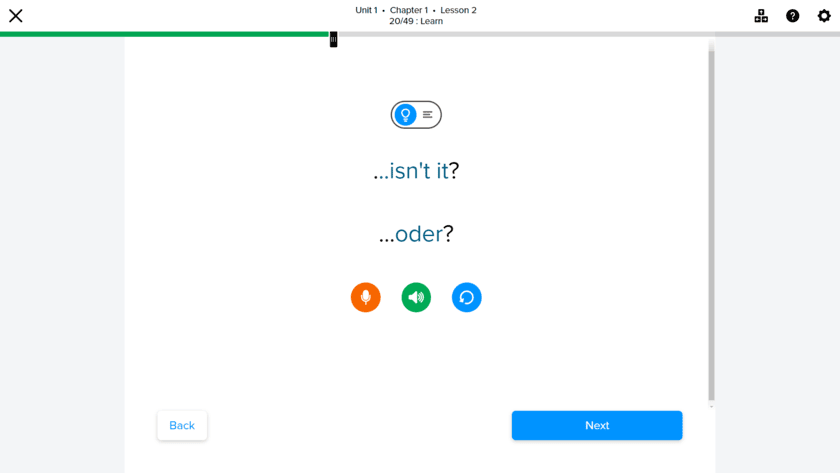
Color-Coded Sentences for Structure
My final advantage is how Mango’s sentences are color-coded. This helps you see the structure of each sentence more clearly, with verbs, adjectives, and subjects marked out in various colors. This is a great feature for getting the hang of sentence structure differences.
The Verdict: Rocket or Mango?
While Mango has some unique tools that I found useful, and is easy on the wallet, Rocket Languages offers a more complete and immersive experience. With its in-depth audio lessons, clear grammar coverage, and engaging practice drills, Rocket has the edge for me in terms of keeping me motivated and helping me progress. It would be my choice between the two, though I would note that these two apps do complement each other well.
Overall, I had a better experience with Rocket. It was a more fulsome app, with deep coverage of grammar, and I loved the audio lessons. Mango was good for quick tips and vocab, but that’s it.
Rocket only sells lifetime plans, which cost $180 after discounts. Mango, however, offers monthly subscription plans that cost $10-$20 per month.

